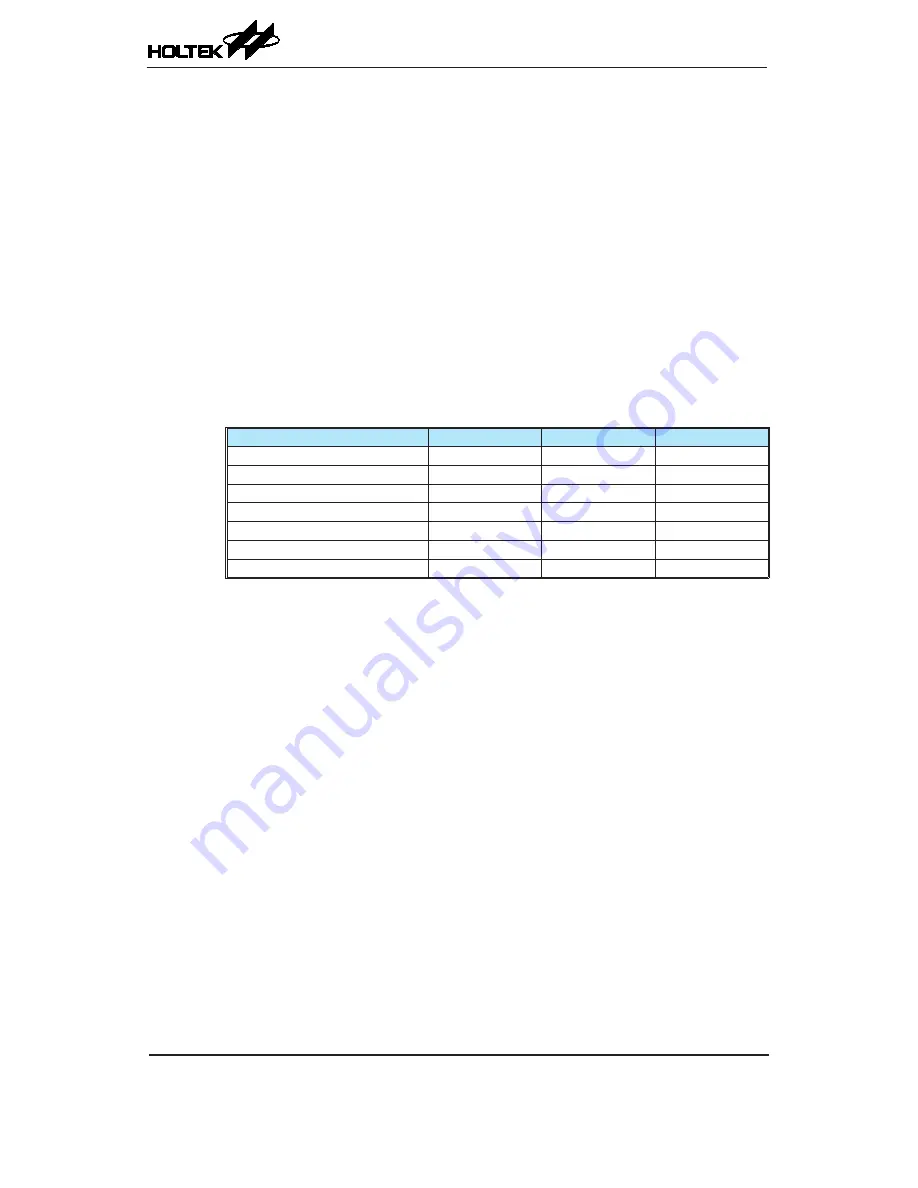
Rev. 1.00
78
September 11, 2018
Rev. 1.00
79
September 11, 2018
HT45F4050
A/D NFC Flash MCU
HT45F4050
A/D NFC Flash MCU
Timer Modules – TM
One of the most fundamental functions in any microcontroller devices is the ability to control and
measure time. To implement time related functions the device includes several Timer Modules,
generally abbreviated to the name TM. The TMs are multi-purpose timing units and serve to provide
operations such as Timer/Counter, Input Capture, Compare Match Output and Single Pulse Output
as well as being the functional unit for the generation of PWM signals. Each of the TMs has two
interrupts. The addition of input and output pins for each TM ensures that users are provided with
timing units with a wide and flexible range of features.
The common features of the different TM types are described here with more detailed information
provided in the individual Compact, Standard and Periodic TM sections.
Introduction
The device contains three TMs and each individual TM can be categorised as a certain type, namely
Compact Type TM, Standard Type TM or Periodic Type TM. Although similar in nature, the
different TM types vary in their feature complexity. The common features to all of the Compact,
Standard and Periodic TMs will be described in this section and the detailed operation regarding
each of the TM types will be described in separate sections. The main features and differences
between the three types of TMs are summarised in the accompanying table.
TM Function
CTM
STM
PTM
Timer/Counter
√
√
√
Input Capture
—
√
√
Compare Match Output
√
√
√
PWM Channels
1
1
1
Single Pulse Output
—
1
1
PWM Alignment
Edge
Edge
Edge
PWM Adjustment Period & Duty
Duty or Period
Duty or Period
Duty or Period
TM Function Summary
TM Operation
The different types of TM offer a diverse range of functions, from simple timing operations to PWM
signal generation. The key to understanding how the TM operates is to see it in terms of a free
running count-up counter whose value is then compared with the value of pre-programmed internal
comparators. When the free running count-up counter has the same value as the pre-programmed
comparator, known as a compare match situation, a TM interrupt signal will be generated which
can clear the counter and perhaps also change the condition of the TM output pin. The internal TM
counter is driven by a user selectable clock source, which can be an internal clock or an external pin.
TM Clock Source
The clock source which drives the main counter in each TM can originate from various sources.
The selection of the required clock source is implemented using the xTCK2~xTCK0 bits in the
xTM control registers, where "x" stands for C, S or P type TM. The clock source can be a ratio of
the system clock, f
SYS
, or the internal high clock, f
H
, the f
SUB
clock source or the external xTCK pin.
The xTCK pin clock source is used to allow an external signal to drive the TM as an external clock
source for event counting.
TM Interrupts
The Compact Type, Standard Type and Periodic Type TMs each have two internal interrupts, one for
each of the internal comparator A or comparator P, which generate a TM interrupt when a compare
match condition occurs. When a TM interrupt is generated it can be used to clear the counter and
also to change the state of the TM output pin.















































